The initiative is led by the Virginia Murray Sowell Center for Research and Education in Sensory Disabilities.
Employment can provide life-changing independence for Cecilia Gutierrez’s clients. It can be life changing for their parents too.
As executive director of Let’s Go Texas, Gutierrez helps people with disabilities in Laredo and other south Texas communities find jobs. The agency offers a range of services, including job matching, social skills training and ongoing job support. Many of her clients have autism and live with parents or family, depending on them for basic needs and decisions.
"Parents always ask me: ‘What’s going to happen to my child when I die?’" Gutierrez said. "I can give them piece of mind in knowing that their child can wake up in the morning, go to work, meet new people, connect with others and have good quality of life."
Since 2013, Gutierrez and Let’s Go Texas have helped hundreds of people of all ages overcome barriers to competitive employment. But Gutierrez wants to do more.
To help make that possible, Gutierrez joined Project Leadership Challenge, an initiative led by Texas Tech University’s Virginia Murray Sowell Center for Research and Education in Sensory Disabilities to prepare leaders of provider organizations that serve people who have intellectual and developmental disabilities (I/DDs).
In November, Gutierrez and members of her organization completed a week of training at Texas Tech. Since then, they have been working with faculty there to complete a "challenge" transforming her organization to better serve people with I/DD.
Gutierrez relied on her experience as a pastor's wife and a former teacher when founding Let’s Go Texas. For her, Project Leadership Challenge was an opportunity to continue to build her expertise and take the agency to a new level of professionalism.
One way to do that, she said, was through developing comprehensive policies and procedures that will ensure her growing agency is always using best practices.
She also hoped to implement an online project management system that will allow Let’s
Go Texas to streamline paperwork and efficiently meet rigorous state reporting requirements.
The system would also help them keep track of clients across an expanding service
area that includes San Antonio and other nearby communities like New Braunfels, Seguin,
Uvalde.
But the bigger goal, Gutierrez said, is figuring out how to eliminate gaps in service
that some of her clients experience.
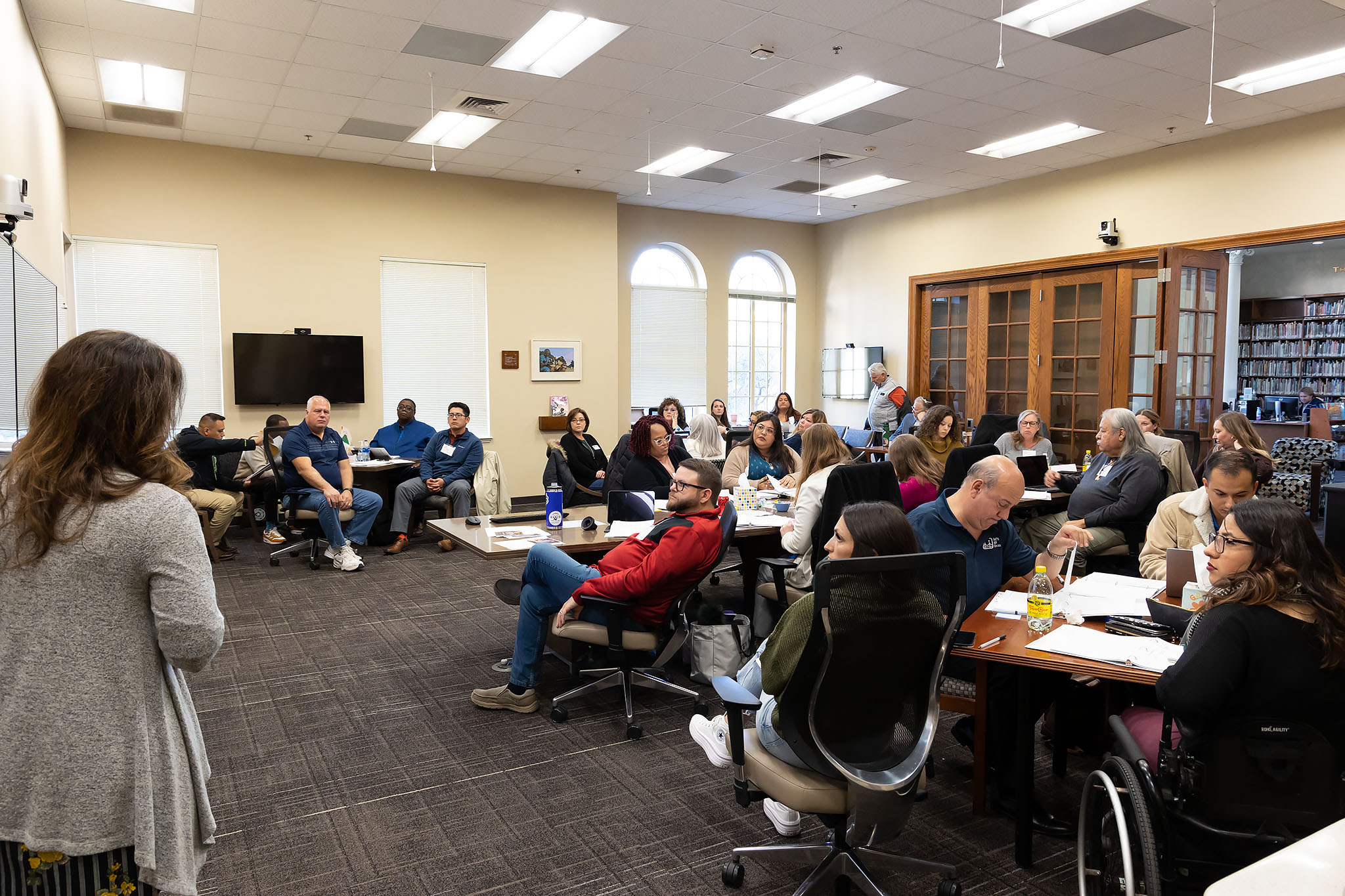
For example, a client may have found a job, but needs a uniform or an assistive device like a hearing aid or wheelchair so they can work. They may be eligible to receive the clothing or device from the state, but the process can take months.
Gutierrez wants to be able to offer a solution while they wait.
"They can’t get a job right away because they don’t have the tools they need," she said. "But what if there was an agency that could lend that in the meantime?"
Giving Back Through Mentorship
Gutierrez and other participants have the help of mentors who previously completed Project Leadership Challenge, including members of Down Home Ranch. The 410-acre ranch in Elgin offers social, educational, residential vocational opportunities for people with disabilities.
Down Home Ranch joined Project Leadership Challenge in 2019. They were seeking to improve professional development for staff during a critical transition period after the departure of founders, Judy and Jerry Horton, who had run the ranch since its opening in 1989.
The situation was precisely what Project Leadership Challenge was made for, said Stacy Carter, the project director and a professor of special education at Texas Tech.
"The aim of Project Leadership Challenge is to create a new generation of leaders within the field of developmental disabilities to take over where many of the current Texas leaders are preparing to step down," Carter said. "Agencies like Let’s Go Texas and Down Home Ranch have a unique opportunity to lead the way toward changing how people with I/DD can live, what work they can do and how they can be supported in the state of Texas."
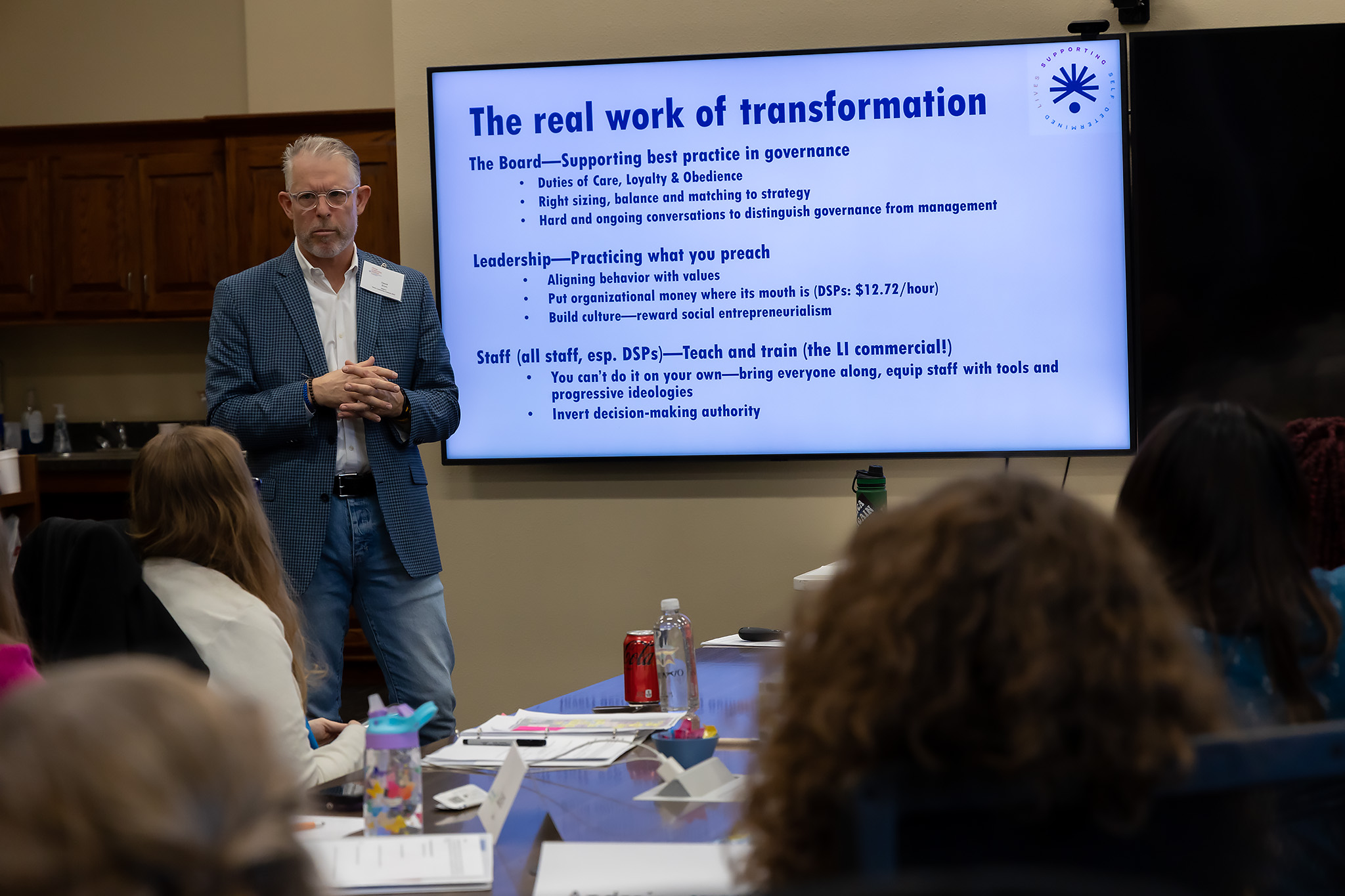
Down Home Ranch worked with Texas Tech and a consultant to develop orientation videos, internal training programs, new job descriptions and other ways to better support staff members and clearly define roles.
It allowed them to continue to thrive after the departure of the founders, said Craig Russell, executive director of Down Home Ranch.
The experience also reaffirmed the importance of self-direction and community inclusion, he said.
Project Leadership Challenge includes a four-day seminar led by the National Leadership Consortium on Developmental Disabilities (NLCDD) that covers current policies, best practices, evidence-based outcomes and quality services – all with a focus on improving the lives of people with I/DD.
Participants spend time discussing the broad push in the United States for increased self-direction and community inclusion that has been unfolding since the 1960s and 1970s, when investigative journalists like Geraldo Rivera brought attention to inhumane conditions and mistreatment faced by people living in state institutions.
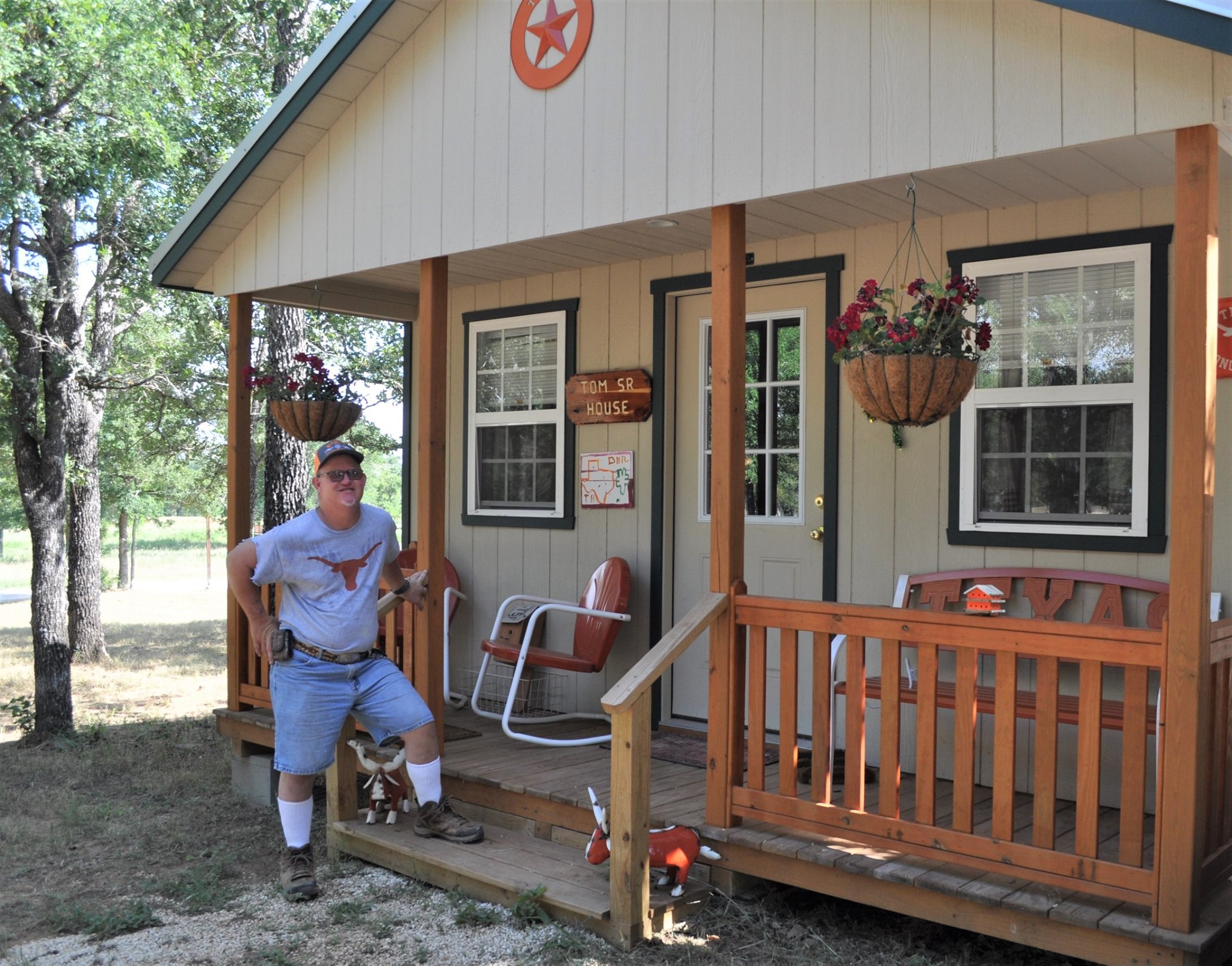
Rivera’s exposés led to widespread outrage and calls for reform, including the deinstitutionalization movement, which sought to close large-scale institutions and transition individuals with disabilities into community-based settings. The movement, which continues today, aims to give people with disabilities more control over their lives and promote their integration into mainstream society.
"We realized our role was to create the opportunities for our clients, "Russell said. "It was like: Here’s a bunch of opportunities. You guys pick through what you want to do, and we’ll make it happen."
Down Home Ranch restructured its organization to provide clients more freedom in scheduling their days and choosing jobs, whether that’s on the ranch or in town.
Russell tells the story of a resident who discovered a hidden talent and passion after taking a class on woodworking. "Out of the blue, this guy went to a woodshop class and found out he love woodworking," Russell said. "He’s been doing it for years now, and he sells his products through an Etsy store."
The ranch also built three new microhomes, small one-bedroom houses that are an alternative to its residential group homes.
One resident who is a fan of the University of Texas football team was thrilled to leave behind a group home and deck out his microhome in the school colors, Russell said. He was able to create his own schedule that gave him time to watch Texas football games from his living room.
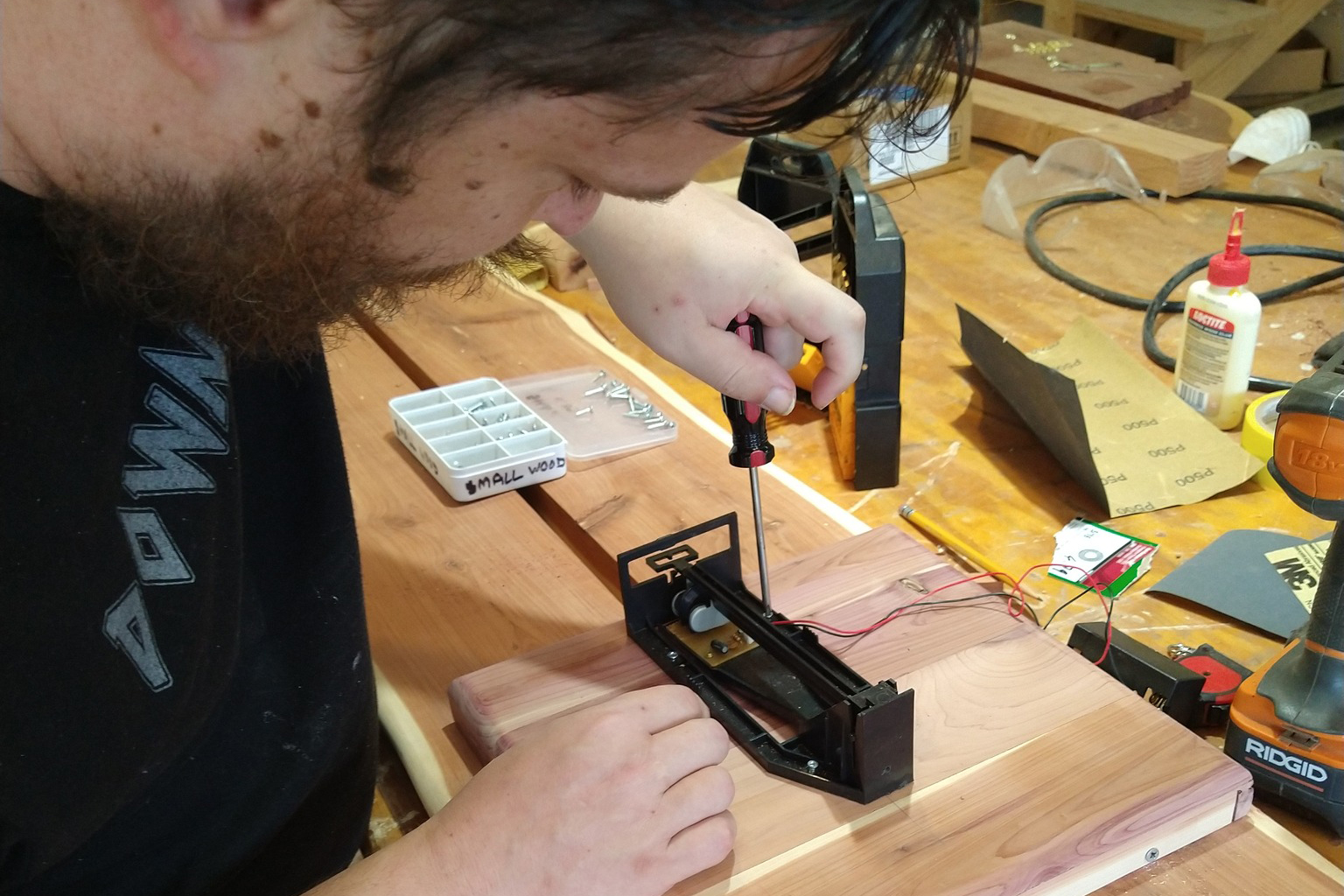
Creating more choice and opportunities for independence also has personal significance for Russell, who is a parent to two children with I/DD.
"You make decisions in your life, and they led to who you are today," Russell said. "But what if you were not the decision-maker in your life? Would you be the best you could be? That’s what I always think about with people with I/DD. I always wonder: What could this person really achieve if they had more control over their lives?"
‘It Makes our Communities Better’
Gutierrez began her journey as a disability service provider in 2013, while she was finishing a three-decade career as a teacher. She noticed that young people with disabilities often struggled to adapt to life after high school. Left without the special education services offered through school, they didn’t know where to turn.
This realization was driven home during her first year working as a provider, when she encountered a former student who came to her for employment assistance. The man, who had a hearing impairment, had five children and was struggling to maintain part-time work at an H-E-B supermarket.
"I was there when he graduated; I thought we had done a great job," Gutierrez said. "But here he was with no place to go. He had nothing."
Gutierrez reached out to H-E-B and partnered with them to help the man become a full-time employee.
"He now has benefits, which he wanted for his kids," she said. "And today, he’s been there for 19 years."
Today, Let’s Go Texas' team of five full-time employees and 20 or so contractors serve more than 60 clients at a time.
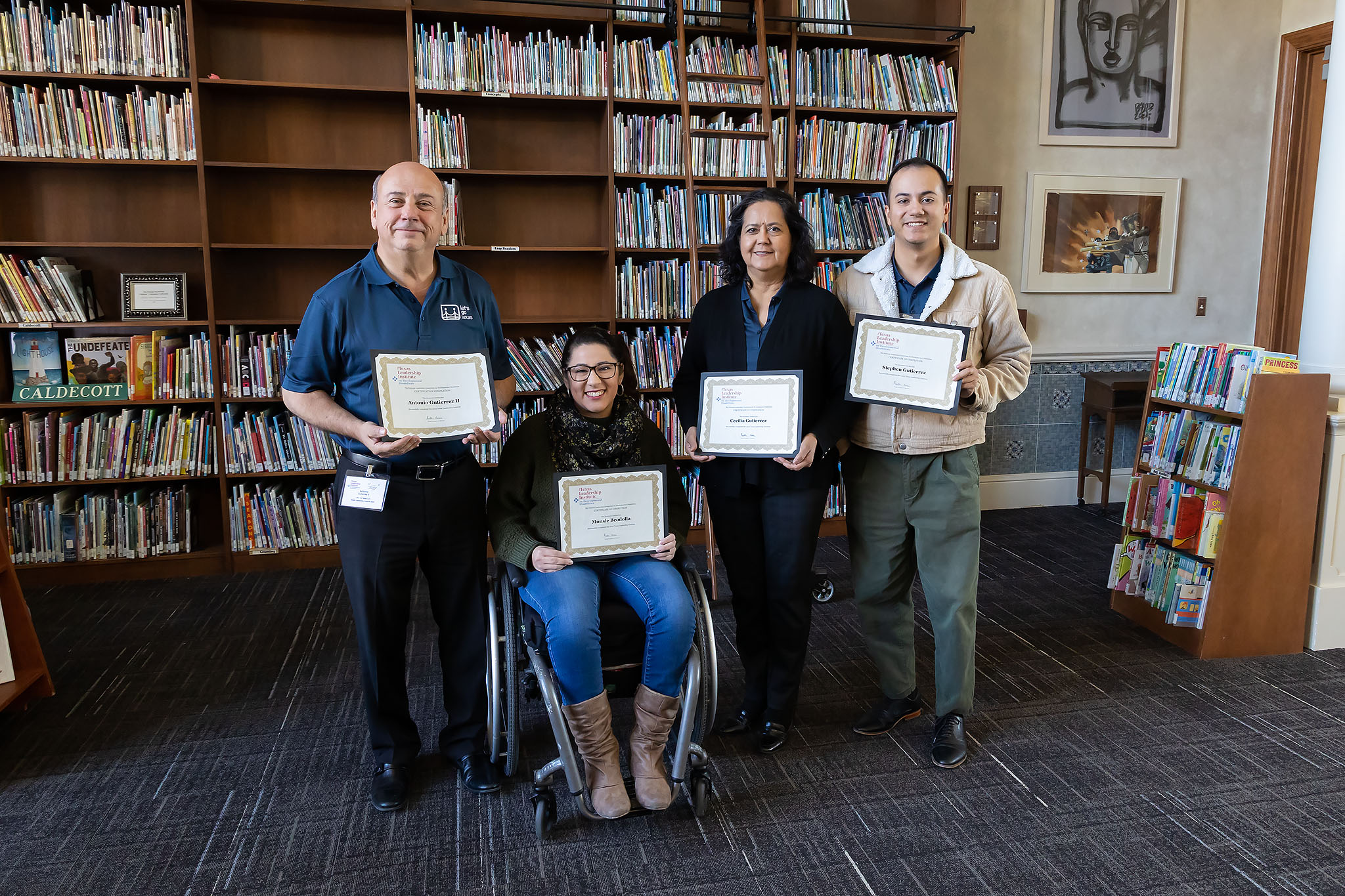
But with more people than ever set to graduate high school with autism, Gutierrez faces an incoming tidal wave. In 2000, the Centers for Disease Control and Prevention estimated that one in 150 children had ASD. Today, that statistic is one in 36 children.
Gutierrez, 60, is keenly aware of the growing urgency. But she is also hopeful and inspired after attending Project Leadership Challenge and meeting a younger generation of leaders from provider organizations around the state.
Joining Gutierrez at the trainings was staff member Monsie Bedolla. Gutierrez was also joined by her husband, Antonio, and a son, Stephen, who both work at Let’s Go Texas. Gutierrez’s daughter, Kristian, also works at the agency.
Gutierrez is hopeful that they will carry on and expand Let's Go Texas.
"My ultimate goal as an executive director is to create opportunities for people to carry the torch when I’m no longer here, who will change the lives of others through the work they do," she said. "It makes our communities better."
MORE ABOUT PROJECT LEADERSHIP CHALLENGE
Project Leadership Challenge is funded by a $750,000 grant from the Texas Council for Developmental Disabilities (TCDD). The mission of TCDD is to create change so that all people with disabilities are fully included in their communities and exercise control over their own lives.
I/DDs are conditions that affect cognitive ability, adaptive functioning and daily living skills. These disabilities can be present from birth or can develop later in life due to injury or illness. Examples include autism spectrum disorder, Down syndrome, Fragile X syndrome, cerebral palsy, traumatic brain injury and fetal alcohol syndrome.
